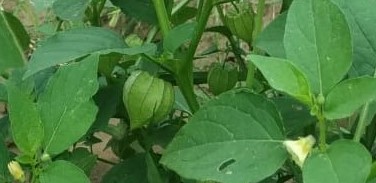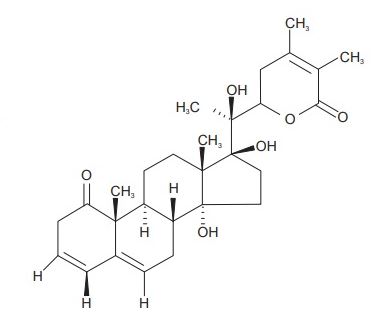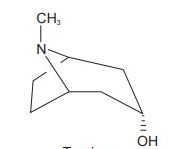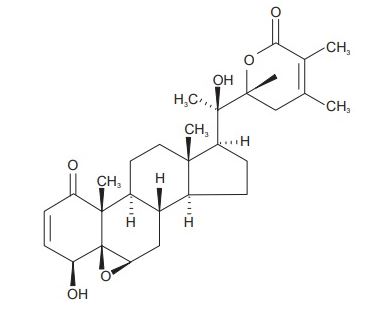
Ashawgandha is small shrub with yellow flowers which is widely distributed from southern Europe to India and Africa.
Synonyms:
- Withania somnifera (Latin),
- Asgandah(Hindi),
- Pilpotan(Haryanvi),
- Amukura(Tamil),
- Asandh, Darogunj(Marathi)
- Indian ginseng(ginseng is a chinese plant)
History:
Ashwagansha as a medicine in Ayurved from last 3,000 – 4,000 year on the teaching of esteemed Rishi Sage (Punarvasu Atriya).
Chemical Contituents:
- Main constituent: Alkaloid withanine
- Another constituents: Somniferine, pseudowithanine, tropine & pseudotropine, hygrine, isopellederine, anaferine, anahygrine and steroid lactones. Leaves contain steroid lactone, commonly known as Withanolide.
 |
| Withanolide F |
Uses:
- The roots, bark, leaves, fruit and seed are used to treat nervous disorders, intestinal infections and leprosy.
- If a also used as tranquilizer in India on the place similar to ginseng in china. That’s why it is also called Indian ginseng.
- Mailly acts on Reproductive and Nervous system, having an rejuvenative effect on the body.
- Used to improve vitality and aid recovery after chronic illness.
- Used to treat nervous exhaustion, debility, insomnia, wasting diseases, failure to thrive in children, impotence, infertility; multiple sclerosis, etc.
- Applied as a poultice to boils, swellings and other painful parts.
- Withania is considered as an adaptogen and so is used in number of diseases.



